UK stock markets close at a record high
- Published
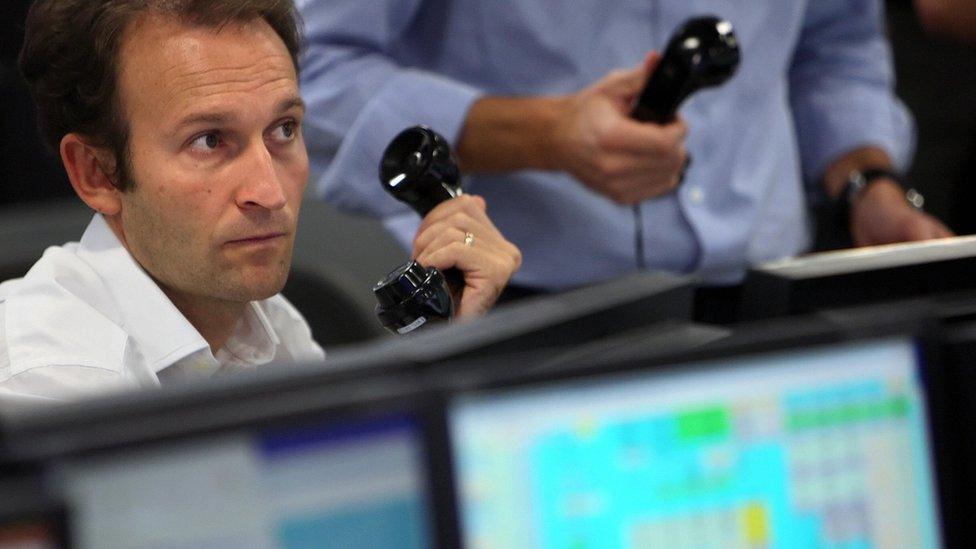
UK stock markets climbed to new highs on the final day of trading for 2017.
Both the FTSE 100 index of leading blue chip companies and the FTSE 250 reached new records at the close of trading.
US stock markets have also hit new peaks over the year, helped in part by Donald Trump's sweeping tax reforms.
Stephen Eckett, author of the annual Harriman Stock Market Almanac, said: "All the dangers that were anticipated with a Trump administration haven't materialised."
The FTSE 100 finished up 7.6% at 7,687.77 compared with the last day of trading in 2016.
Meanwhile, the FTSE 250 ended 14.7% ahead at 20,726.26 compared with the end of last year.
Mr Eckett said: "It has been a little bit of a surprise to many people that markets were are strong as they were this year."
George Salmon, an equity analyst at Hargreaves Lansdown, said the FTSE 100 had been lifted by natural resource giants such as Shell and BP which have benefitted from a rise in oil prices.
Brent crude fell as low as $45 per barrel in June but is now trading at $66.34.
The fall in sterling since Brexit has also boosted earnings since many of the FTSE 100 companies have large operations abroad, said Linda Yueh, a professor of economics at London Business School.
" A lot of the rise in the FTSE 100 is because of the weak pound," she said.

Analysis
By Joe Lynam, Business Correspondent
If ever we needed a reminder about the disconnect between our largest listed companies and Britain's 'real' economy , we got it today. UK GDP growth is well below the G7 average and real wages continue to fall.
Despite that, Britain's PLCs are doing very well thank you. That's because most of them earn the vast majority of their profits overseas and the global economy is enjoying is best period of sustained growth in a decade.
The better the world does, the more stuff UK quoted firms can sell. It helps, of course, that the pound has remained relatively weak since the referendum last year - meaning British based exporters can repatriate higher profits earned in stronger currencies.

US stock markets
However, John Botham, global equities product director at City firm, Invesco Perpetual, said that, while the UK's leading index is at a record high, "the FTSE 100 has performed far less well than the US stock market and indeed many stock markets around the world".
In the US, the tech-focused Nasdaq has rose more than 1,740 points or about 28% since the start of the year to close at 24,719.22 on Friday.
The Dow Jones Industrial Average gained about 25% over the year, adding more than 4,830 points to close at 24,719.
The S&P 500 rose 19% since January, adding more than 400 points to close at 2673.6.
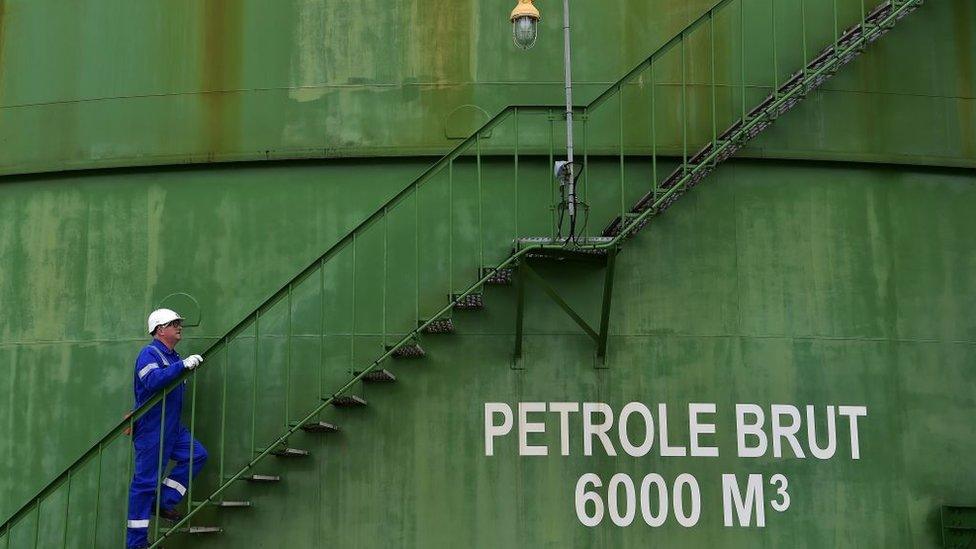
Oil prices recovered towards the end of 2017
Analysts attribute the rise to strong corporate earnings at global companies, with technology firms contributing heavily to the gains.
Commenting on the year ahead, Mr Botham said: "We are looking at a situation where global growth seems reasonably well synchronised and we are likely to continue to see earnings growth from companies around the world."
The Brexit effect
Housebuilders were among the best performing companies on the FTSE 100 in 2017.
Berkeley Group, which mainly builds luxury homes in London, rejoined the blue chip index in September and has seen its share price rise by more than 50% this year.
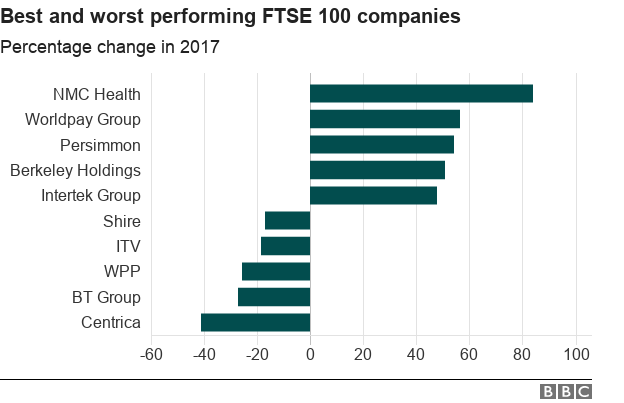
Berkeley had fallen out of the FTSE 100 last August and into the FTSE 250 after its share price tumbled on fears that the UK's vote to leave the European Union would adversely impact on the housing market.
Fellow property group Persimmon saw its share price rise by 57%.
However, Mr Salmon said: "Not all of the referendum effects have blown over."
Businesses such as advertising giant WPP and broadcaster ITV were among the worst performers as companies reduced investment in marketing.
"Advertising spending does fall into discretionary spending," said Mr Salmon.
NMC Healthcare, which is one of the largest private healthcare providers in the UAE, saw its share price jump by 84% after expanding its operations in the Middle East.
Shares in British Gas-owner Centrica endured a bumpy year, falling 41% after being buffeted by Prime Minister Theresa May's revived plan to put a price cap on energy bills.
- Published29 December 2017
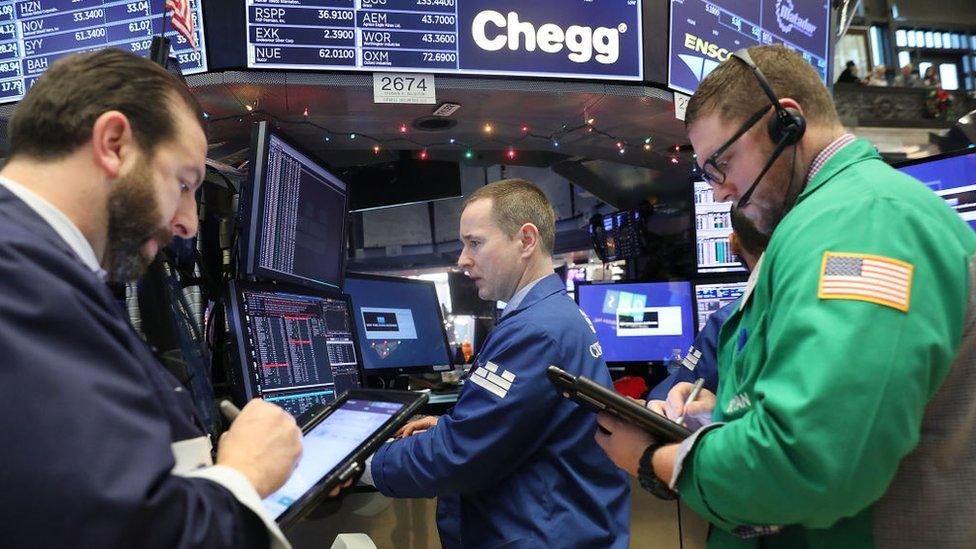
- Published17 October 2017
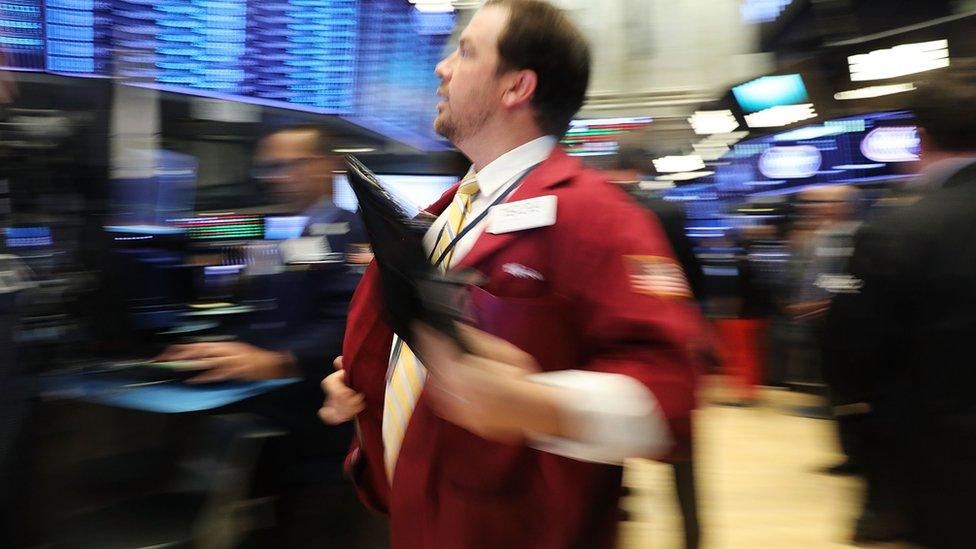
- Published20 December 2017
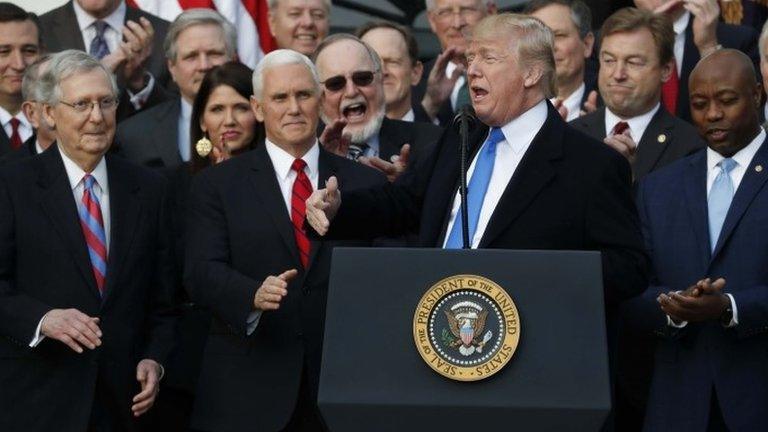
- Published20 December 2017